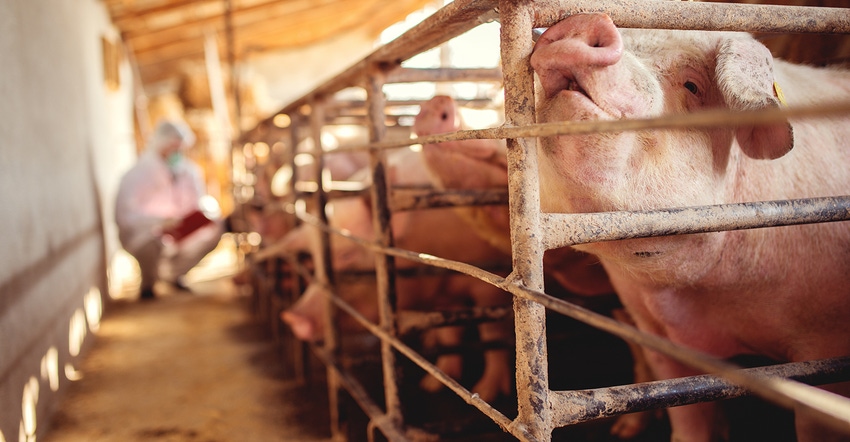Next generation of veterinarians a high priority
Programs such as an externship can make the difference to a veterinarian considering a career change, and could help a new graduate find his or her passion.
October 29, 2019

Baby boomers are retiring in all professions, but the oncoming void seems to be more evident in the veterinary profession than in many others. The long hours, the stress of dealing with animal health issues, the cost of veterinary school — all these factors weigh heavily has young people consider career options.
On the other hand, the rewards can be great, Valerie Ragan told students attending the 2019 U.S. Animal Health Association annual meeting this week in Providence, R.I. Ragan is with the Virginia-Maryland College of Veterinary Medicine’s Center for Public and Corporate Veterinary Medicine, and her passion for students is evident. She knows how important it is to cultivate the next generation of animal health professionals and she’s making every effort to do just that.
USAHA and the American Association of Veterinary Laboratory Diagnosticians offer travel scholarships to students attending the meeting through a program initiated by the CPCVM, providing an opportunity for them to make important contacts and network with industry professionals. This year, Trace First also offered travel scholarships to students through the program.
More than 30 students attended a student luncheon during the meeting. Officers of both organizations and state veterinarians sat at tables with students and answered their questions.
Development of ‘externships’
Ragan discusses the concept of an externship program for practicing veterinarians as another way to attract people to the profession and provide more opportunities for veterinarians considering a career change, many of whom are recent graduates. Currently, veterinary students have externship opportunities to explore a potential career area, while graduate veterinarians do not. Ragan is working to create similar “externship” opportunities for graduate veterinarians also.
Veterinarians are excited about the program, she says. Some are interested in doing an externship for two weeks or more; others would like longer experiences, for six months or a year.
“We’re proposing two to three weeks, depending on what the receiving organization wants,” Ragan says. “We need to be creative as we develop the program.”
Programs like the externship can make all the difference to a veterinarian considering a career change, and could help a new graduate find his or her passion. Veterinarians or others interested in helping develop the program in their organization should contact Ragan.
“I can tell you from coordinating veterinary students to come to the USAHA meeting, it’s a lot of work,” Ragan says. “We’re trying to shape out the externship program for veterinarians and try it in a few areas before we pull the trigger and launch it on a larger scale.”
“I’d like to try a pilot program in a few places first,” Ragan says. “We’re especially interested in people with a practice background and would like to get this done in the next year or so.”
Opening the door
Ragan has also met with federal agency representatives and career advisers from other veterinary colleges at the Association of American Veterinary Medical Colleges to discuss how to better advise students about public practice opportunities.
“I would rather take good raw talent that I can shape, than someone who has a million initials after their name but none of the other qualities we are looking for,” she says. “Many students and veterinarians don’t know where to go to find opportunities: We need to make sure they can see the big picture, and that they know where they can gain skills to make them more marketable down the road.”
The 2019 USAHA meeting covers topics ranging from zoonotic diseases, to regulations, to specific diseases in cattle, horses, sheep, cervids, poultry and pigs, and much more. Leaders from government, industry and academia gather alongside producers to find solutions to health issues that can help animal agriculture thrive.
Source: U.S. Animal Health Association, which is solely responsible for the information provided, and wholly owns the information. Informa Business Media and all its subsidiaries are not responsible for any of the content contained in this information asset.
You May Also Like



